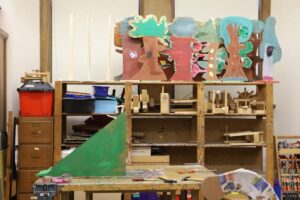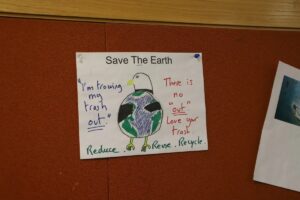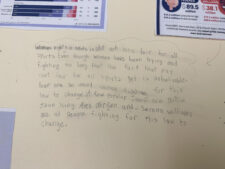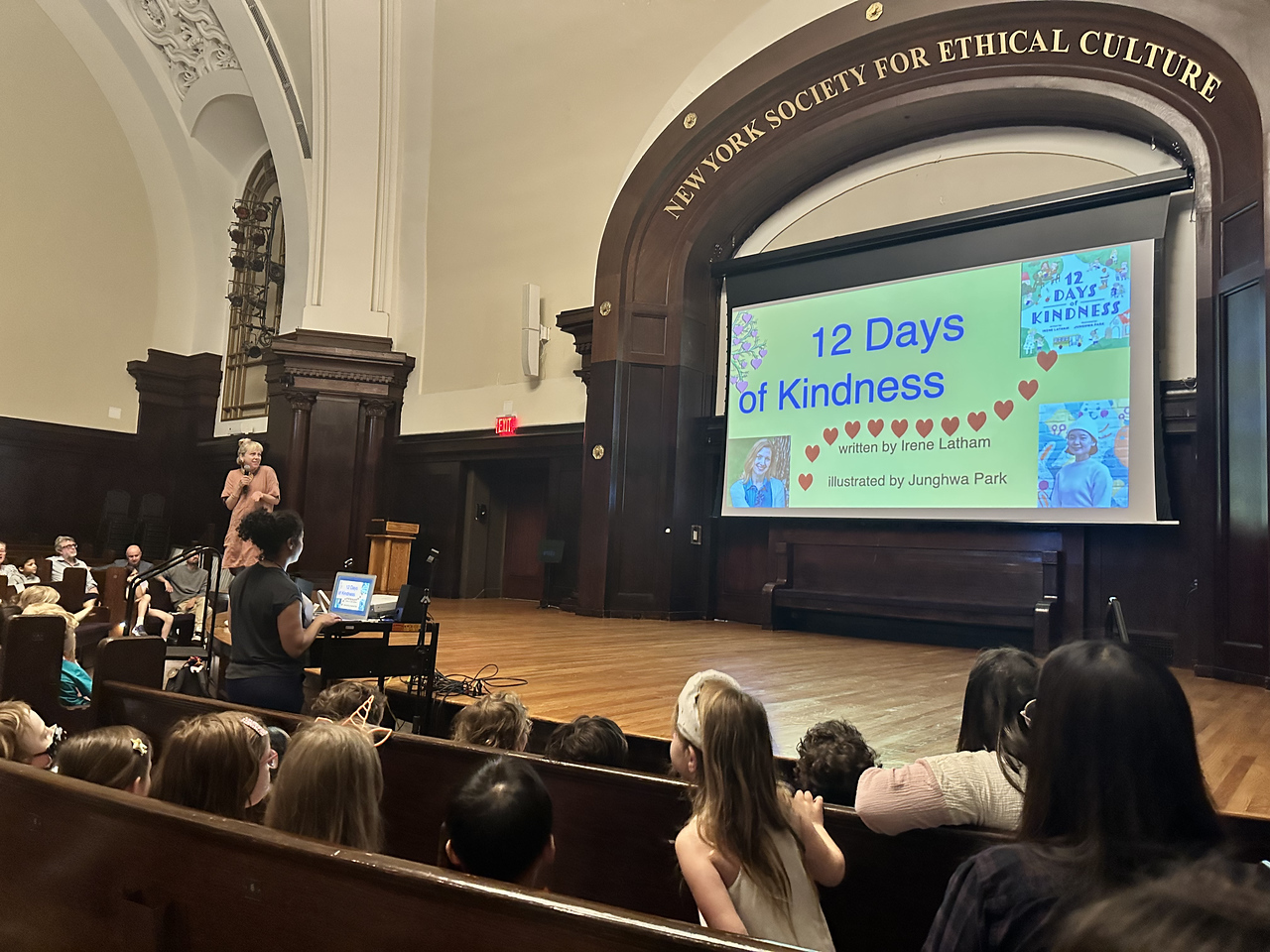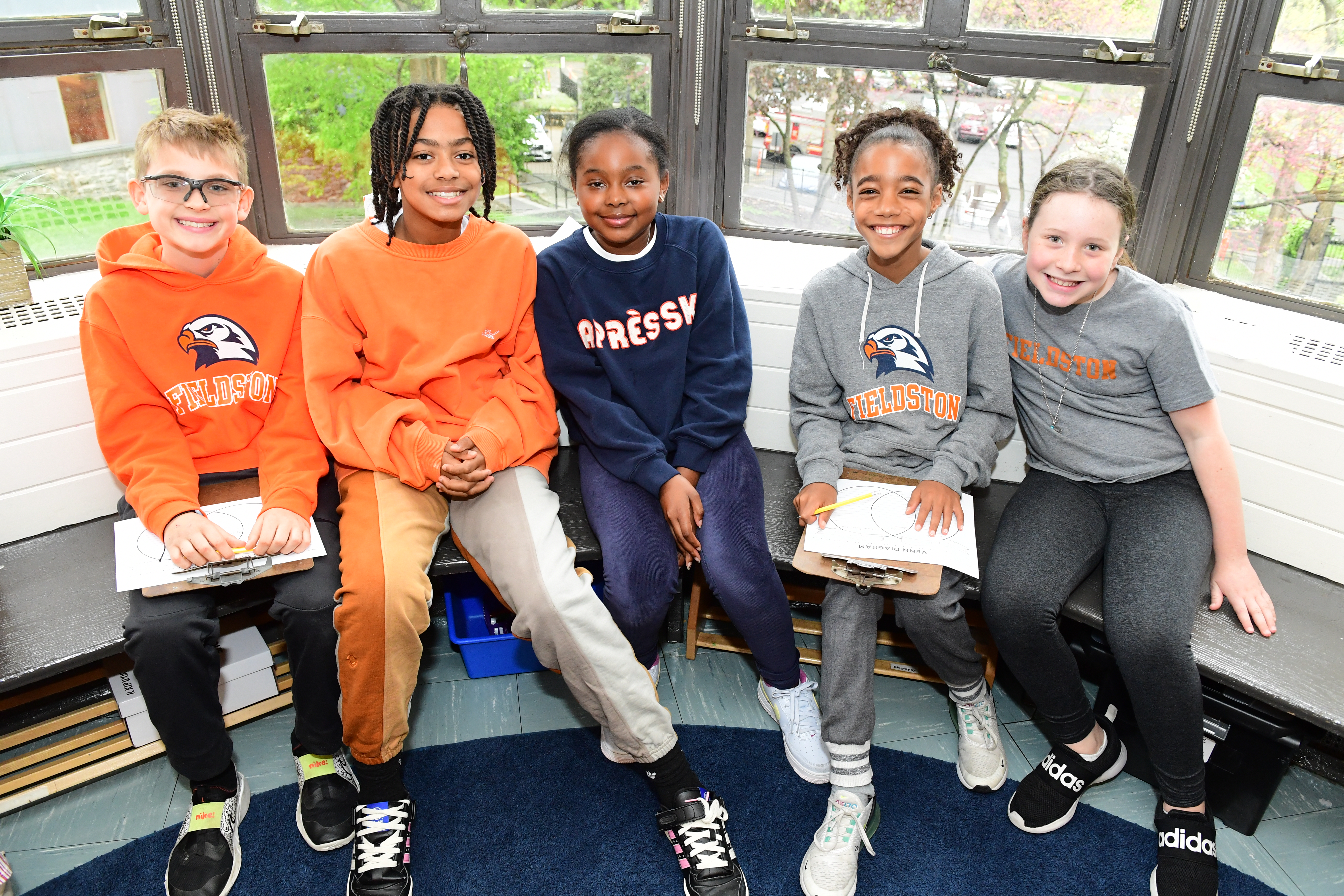With Earth Day approaching on Friday 4/22, we are revisiting the ways in which the Ethical Culture Fieldston School engages in sustainability. This spring, we sat down with the Co-Chairs of the Ethical Culture Green Committee, Ushma Pandya, Kristen Goldberg, and Billy Zhao, to discuss the past, present, and future goals of the committee.
What is the mission of the Ethical Culture Green Committee and why did you get involved?
“We like to think that in many ways it is our responsibility to act as Ethical Culture’s conscience when it comes to sustainability initiatives and thinking critically about ways we can help our planet thrive,” says Goldberg.
Goldberg — who joined the committee as Co-Chair at the end of last year — was looking forward to getting involved with the School after a year of isolation due to the pandemic. “My daughter started Kindergarten at Ethical Culture last year, and I felt I needed to form a meaningful connection with the School. It is so important to instill a sense of responsibility for our planet in the next generation and I thought joining the committee was a great way to do that.”
Zhao was raised in China and described how he grew up with an instinctive aversion to wastefulness due to the scarcity of resources in the country during his youth. When Zhao’s daughter was in Pre-K, he organized a drive to get used, fully functional devices to economically disadvantaged families. When his son started school at Ethical Culture, he immediately joined the Ethical Culture Green Committee to continue advocating for more sustainable practices. “30 years after my childhood in China, I try to combine the “Green” with my penchant for technology.”
Pandya, a self-described “#trashnerd,” runs her own zero-waste firm, Think Zero LLC. “My goal is to bring a waste-reduction mindset to the School’s policies and procedures.”
Programming was put on hold due to the pandemic. What were some of the initiatives you were working on pre-pandemic that you hope to revisit?
Since the beginning of the pandemic, the Ethical Culture Green Committee has had to put many of its projects on hold due to physical distancing protocol. Despite these interruptions, they continue to meet virtually several times throughout the academic year and hope to return to pre-pandemic programming very soon.
Before the pandemic, the Ethical Culture Green Committee conducted several initiatives surrounding sustainability, including equipment swaps to reuse sports materials such as ice skates, composting, recycling programs, tree planting, and the celebrated Green Carnival.
“The Ethical Culture Green Committee originated many moons ago in partnership with the Green Carnival,” explains Pandya. In preparation for the Green Carnival — which before the pandemic traditionally occurred each spring — students would create recycled games out of materials in Woodshop. At the Green Carnival event, students could then play the games to earn tickets which they would redeem in the prize room. “The Ethical Culture Green Committee was always in charge of running the prize room,” says Pandya. “The prize room consisted of recycled items donated by Ethical Culture families such as board games and puzzles.”
Zhao — who is always thinking about sustainability as it relates to technology — was working with a program called PowerMyLearning. “Most of us have first-hand experience with upgrading our computers, phones, tablets, and printers and dealing with drawers and closets cluttered with fully functional devices. We’re left with the unenviable choice between doing the hard job of finding new homes for them, doing the easy job of throwing them out, or doing nothing at all and letting the clutter grow. PowerMyLearning’s program was unique in that they took all that equipment, refreshed them to work together, and got them directly into the hands of people who needed them.”
This impactful and very tangible program fell victim to the pandemic, but Zhao is encouraged this work will be revived and that he can bring something similar to Ethical Culture. “They equipped schools, students, and families while keeping electronics out of the waste stream. This is so incredibly necessary.”
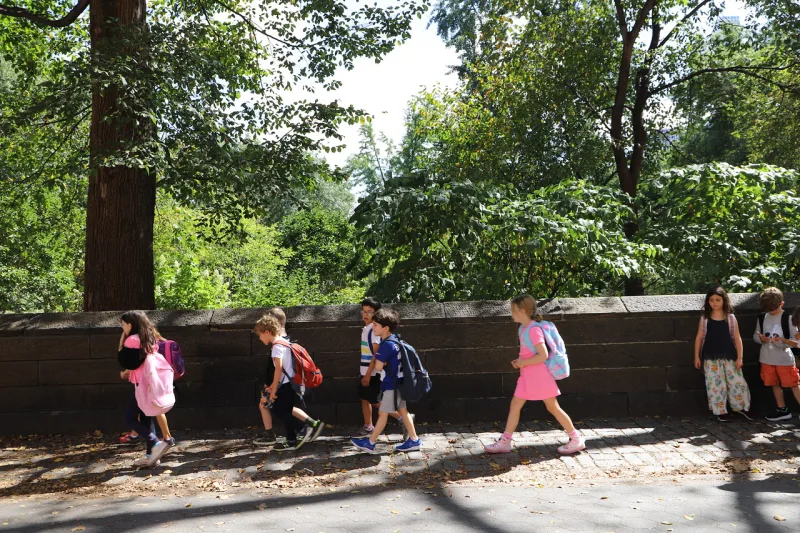
How is the Ethical Culture Green Committee involving students in this work?
The Ethical Culture Green Committee is currently working to re-launch its in-school recycling program and plans to place several additional zero-waste bins throughout the School to collect reusable plastics such as markers, pens, glue bottles, glue sticks, and printer cartridges. “The committee hopes this is something that the students can continue to really be involved in,” says Goldberg. “We want recycling these materials to become second nature, just as composting during lunch and snack time has become.”
The committee is also looking into launching a drive — like the one happening this month at Fieldston Lower — to collect disposable utensils and condiment packets that many restaurant delivery services provide. These items would then be donated to homeless shelters around the city.
“We hope this allows students to connect kindness to our environment with kindness to our community,” says Zhao.
There are several ways in which Ethical Culture’s teachers weave environmental consciousness into the curriculum. “This year alone, Pre-K students planted bulbs on the roof; the Kindergarteners are responsible for terra-cycling on the 2nd floor of the building and are participating in BASH the Trash, a workshop dedicated to making musical instruments from found materials,” explains Assistant Principal Erik Landgren.
The Ethical Culture Green Committee also plans to revisit a pre-pandemic program soon where they will go to Kindergarten classrooms to explain to students the value of the three R’s: Reduce, Reuse, Recycle.
Sustainability practices and activism work hand and hand. Recently, 4th Graders participated in a project during which they researched what it means to be a student activist. Students Isaac S. ’30 and Ryan B. ’30 decided to use what they’d learned to take action. With the help of their teachers and fellow 4th Grade classmates, they collected 100 children’s books and delivered the books to the Brooklyn Book Bodega, which partners with community organizations to ensure the kids and families receive books in addition to food and hygiene items.
Members of the committee hope that the students will soon be able to form their own green committee where they can brainstorm different ideas to bring more sustainability to their everyday activities and continue this type of work as student activists.
Tell us a bit more about what the Ethical Culture Green Committee is working on right now. What are you looking forward to in the future?
In preparation for Earth Day, the Ethical Culture Green Committee recently held a virtual discussion with Anna Sacks, “the Trash Walker,” who is an advocate for low-waste living. Next month, an Ethical Culture parent, Kate McGuire will hold another virtual discussion on how to upcycle your closet.
“I hope to really do more with the wider community,” explains Goldberg. “Let’s look at packaging and utensils and let’s make sure we are staying consistent with our composting and recycling practices. I would love to organize a park cleanup or additional planting activities, perhaps.”
“Oh, and how could I forget! I hope we can revive the Green Carnival very soon,” adds Pandya.
We look forward to this upcoming Earth Day — Friday 4/22 — when our 5th Graders will lead an assembly to celebrate and advocate for the safe-keeping of our beautiful planet.


